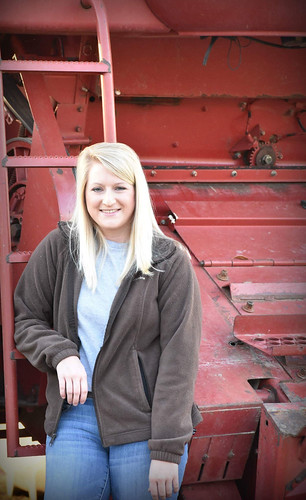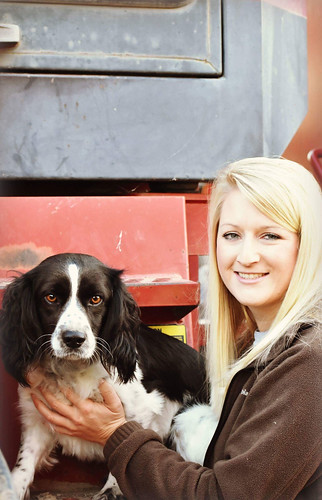
From the time Brittany Caskey was a toddler, she lived her life in the dirt and on tractors, learning from an early age the kind of work it takes to make things grow.
In the small community of Hunter, in Woodruff County Arkansas, Caskey grew up with a dream of becoming a farmer. In 2017, the 26-year-old’s dream came to fruition with help from USDA.
In late 2016, the farmer who employed both Caskey and her father decided to retire, leaving her with the decision to find employment on another farm, or pursue her dream of managing her own operation.
“I had always wanted to farm. I love the outdoors, just the farm life in general. I saw my chance after my boss retired,” Caskey said. “Many said I couldn’t do it and would never make a farmer, but I’m the type that if you tell me I can’t, I will find a way.”
After visiting with several area farmers and a farm loan officer at USDA Farm Service Agency (FSA), Caskey was able to obtain financing through FSA’s farm loan programs to purchase equipment. She was able to utilize FSA’s guaranteed loan program, where a private bank financed part of Caskey’s operating expenses and FSA provided a guarantee against a possible financial loss.
“They got me started completely,” she said. “I went from not having anything, to being able to get all of the stuff I needed to start my operation.”
In her first year managing her own farm, Caskey planted soybeans. Throughout the course of the year, Little Bit Farms, named after Caskey’s miniature donkey, faced several challenges, including rainy weather causing planting delays and some failed crops.
“My first year farming was like anything else in life. It had its ups and downs,” she said.
Caskey has tapped into other USDA programs to help manage the adversities of farming. To manage risk, like adverse weather, Caskey has crop insurance, administered by USDA’s Risk Management Agency. When 200 acres of her soybean crop was flooded this spring, she was able to recoup some of the lost income.
“It definitely helped,” Caskey said. “The money that I got back helped me from being too short at the end of the year and helped me to pay my loan at the bank.”
Additionally, she participates in FSA’s Price Loss Coverage program, which offers a safety net to agricultural producers when there is a substantial drop in prices or revenues for certain crops.
To help with maintenance on the cropland she farms, Caskey hopes to utilize USDA Natural Resources Conservation Service (NRCS) Environmental Quality Incentives Program (EQIP) and the Conservation Stewardship Program (CSP).
Now with her first year of production behind her, Caskey was pleased to reach her number one goal – repaying her loans. Now that she’s been able to accomplish that goal and considers her first year a success, she advises other beginning farmers looking to start their own operation to be resilient and seek out mentors.
“Try to find an experienced farmer, with a successful operation, that believes in you and is willing to answer any questions you might have,” Caskey said.



